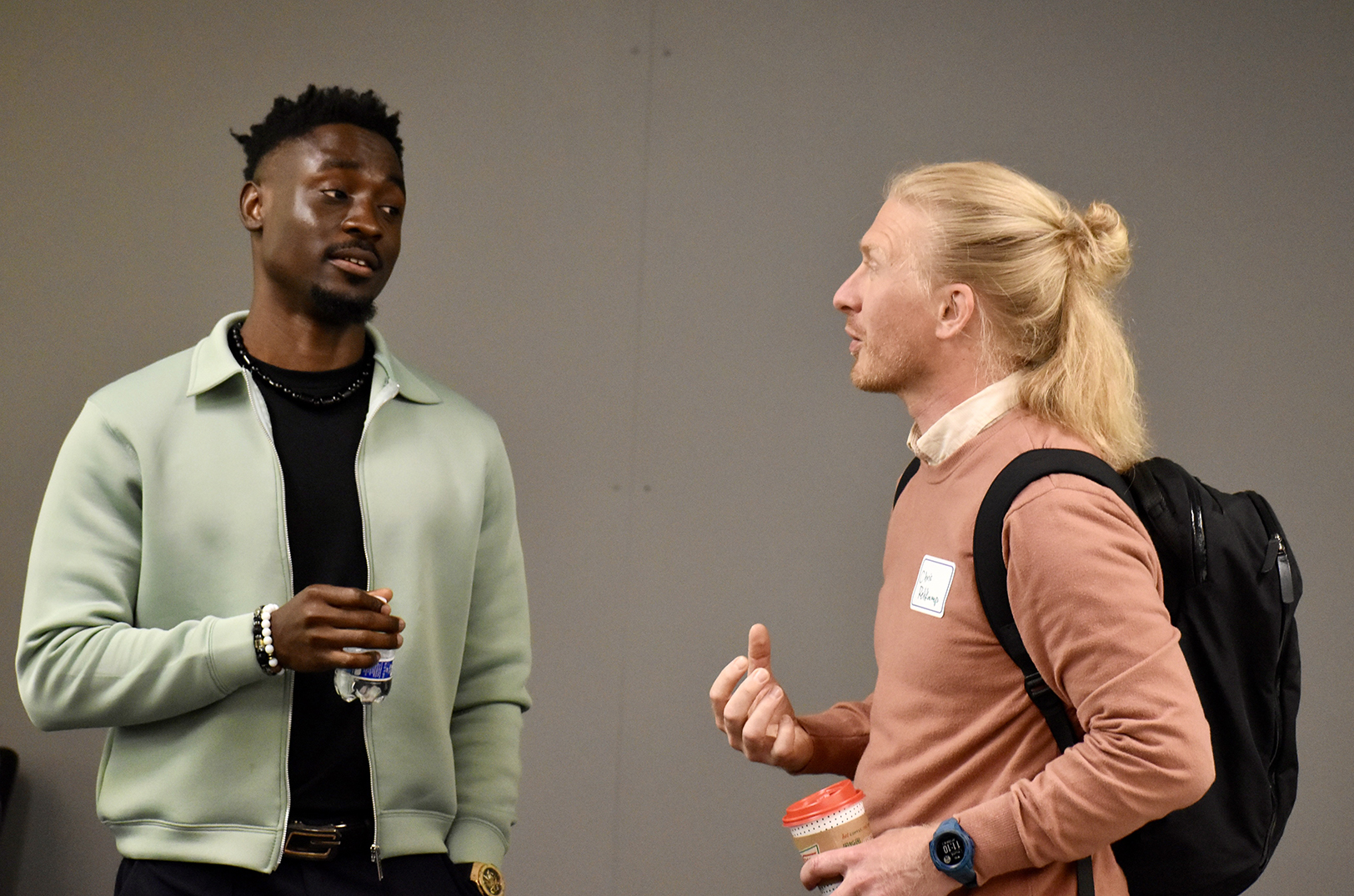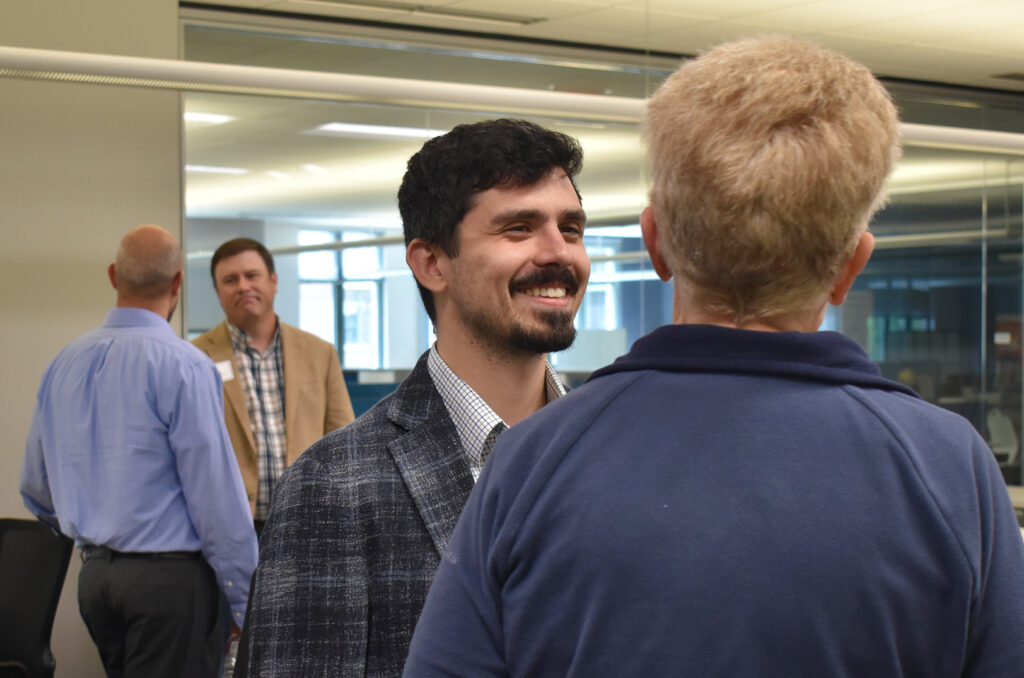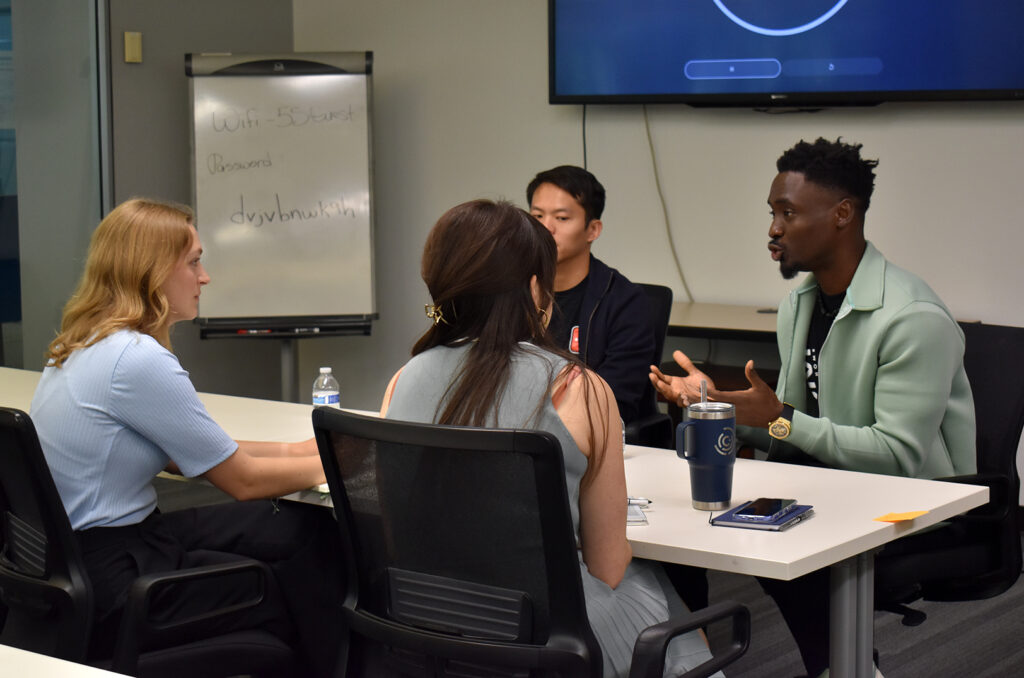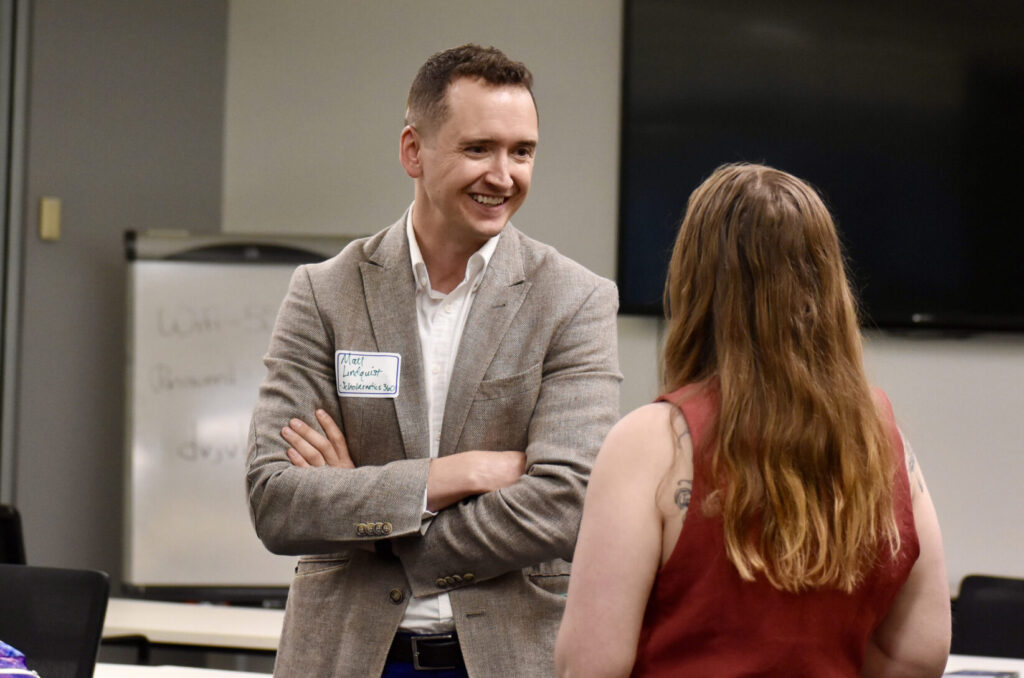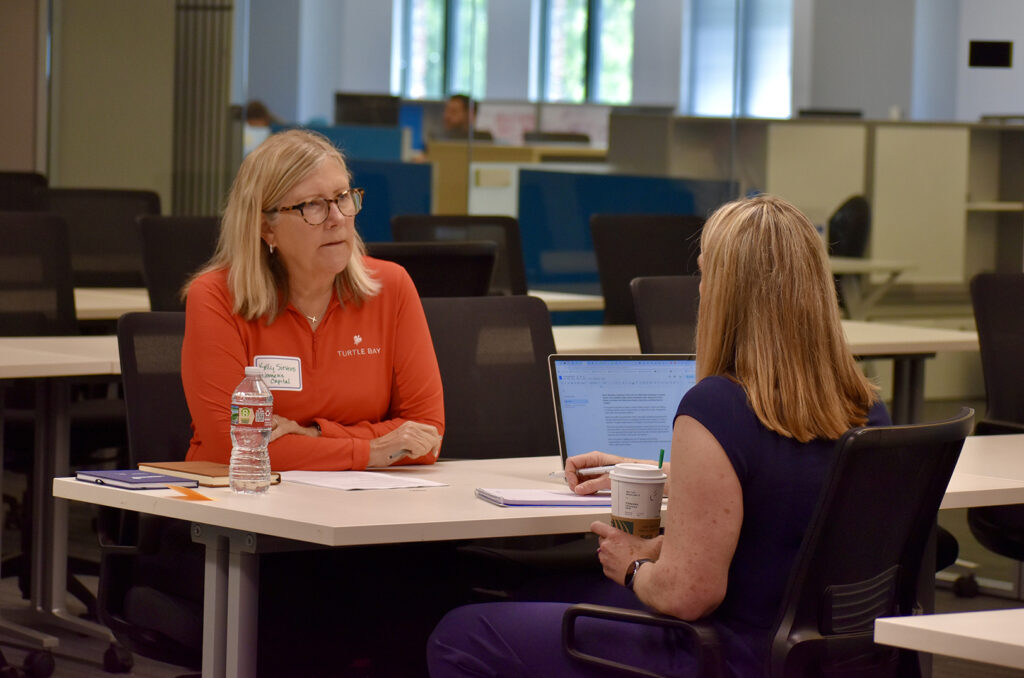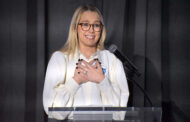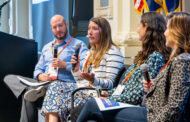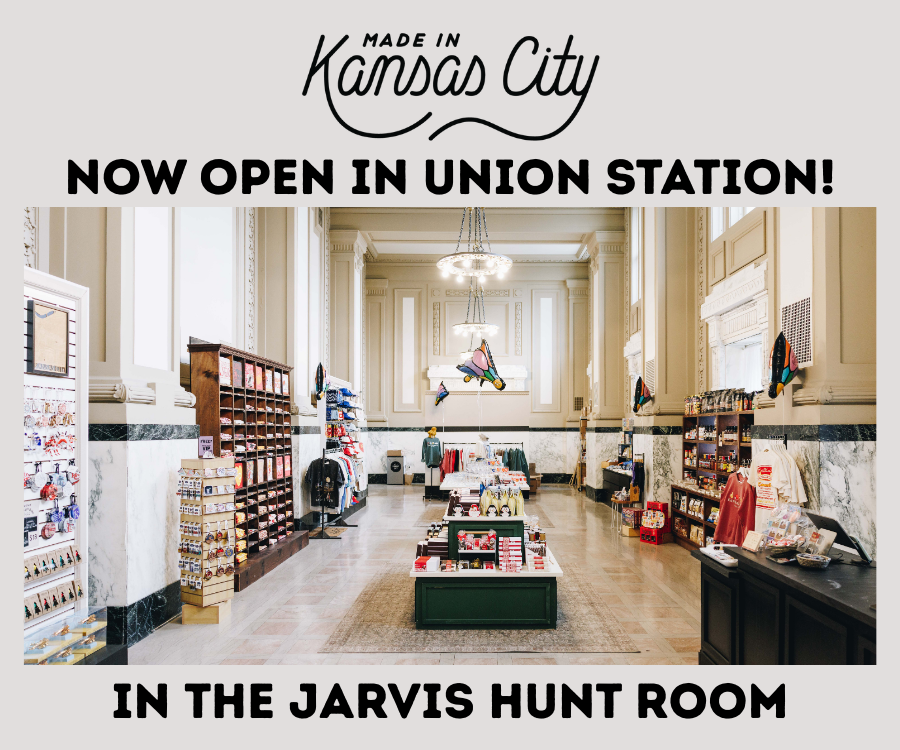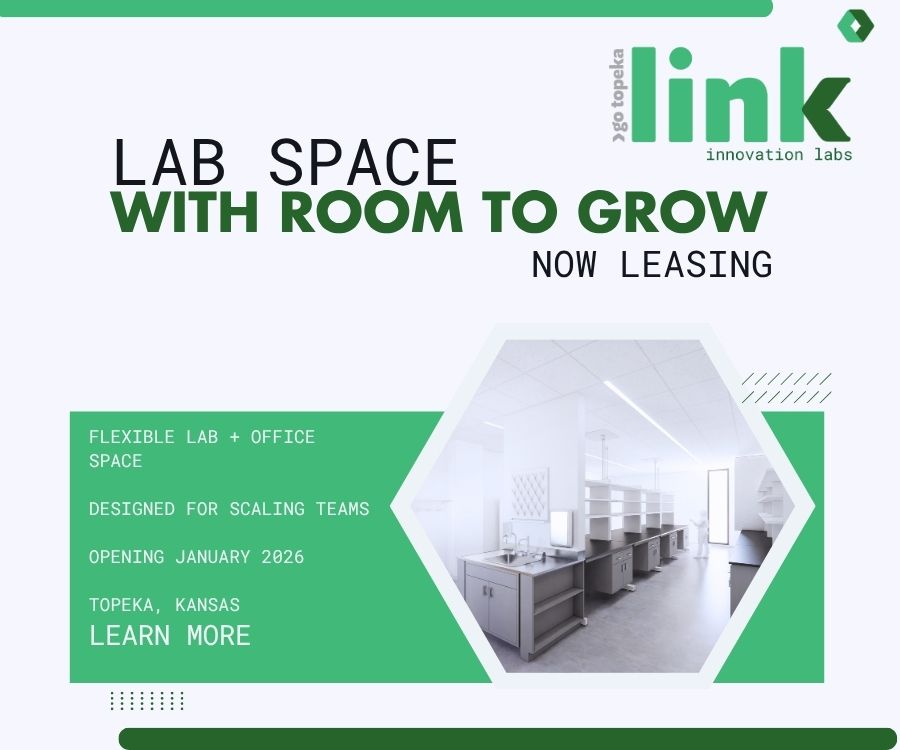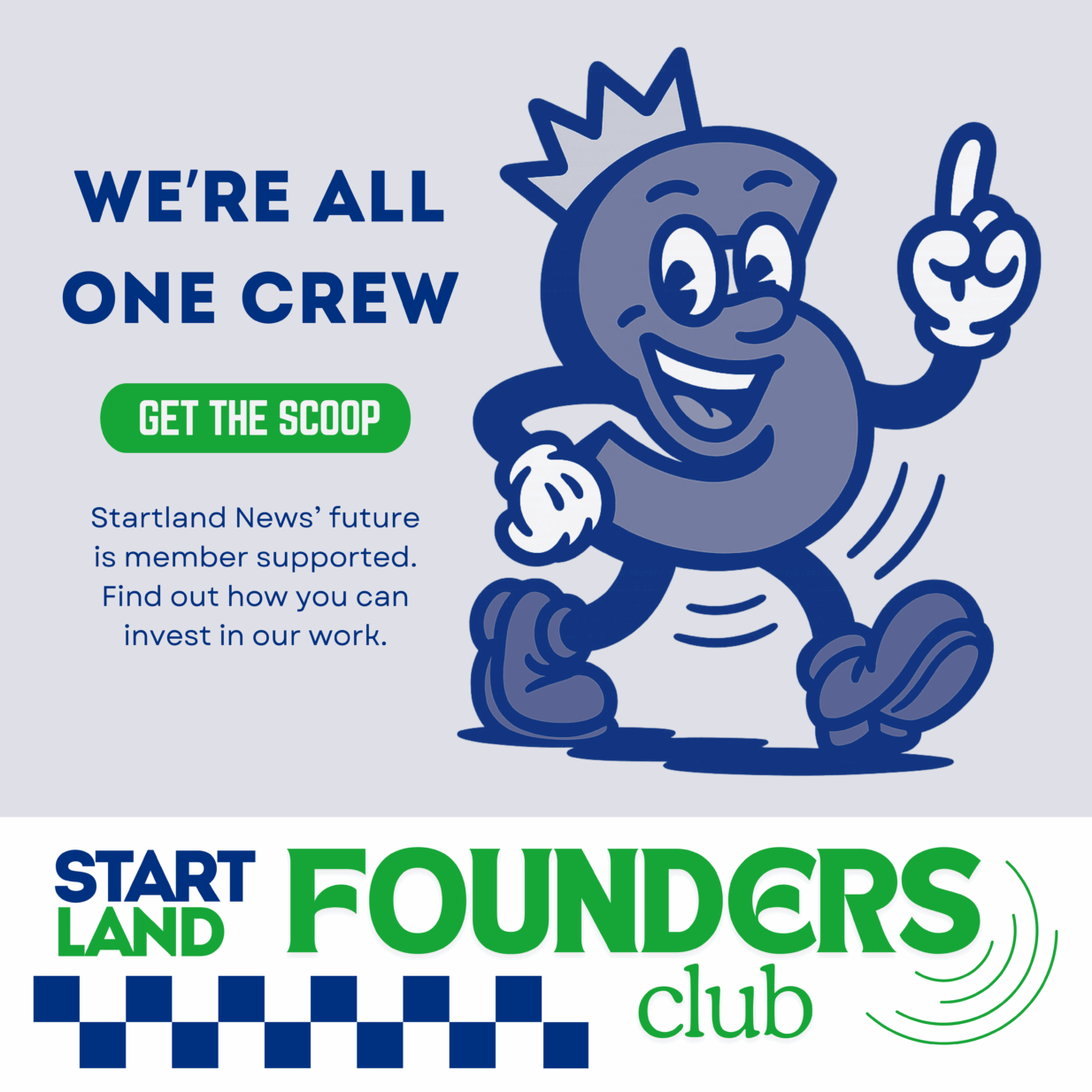Eight early-stage Kansas entrepreneurs sat across from Midwest-based investors this week at Aspiria NOW in Overland Park, engaging in rapid-fire, “speed dating” style meetings aimed at moving their ventures closer to real investment.
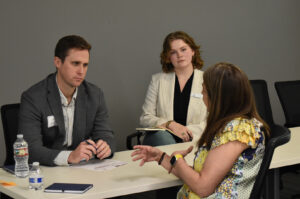
Liam Reilly, investor at KCRise Fund, and Sophia Drouhard,
venture investment coordinator, eGrowth Ventures, listen to a pitch from Trina Nudson, The Layne Project, as part of the NXTSTAGE Accessing Growth Capital Program; photo by Taylor Wilmore, Startland News
“We’re seeing just a great inflow of companies, especially at the early stage, come in just high levels of sophistication and awareness of what they’re building,” said Liam Reilly, investor at KCRise Fund.
The private event marked the finale of the NXTSTAGE Accessing Growth Capital Program, an eight-week initiative designed to help founders navigate the often-intimidating landscape of early-stage fundraising.
With tailored coaching and educational workshops led by Accelerate Venture Partners and eGrowth Ventures the program works to close a persistent gap in capital access for startups across the region.
Click here to see a full list of startups that participated in the event, which also included investors from Flyover Capital, Mid America Angels Capital Investment Network, Women’s Capital Connection, KU Innovation Park, eGrowth Ventures, and Network Kansas.
Not your typical demo day
Unlike traditional demo days filled with public pitches and staged presentations, NXTSTAGE prioritized intimate, one-on-one meetings between founders and investors. The goal: Build genuine relationships and offer candid feedback.
The meetings reflected the growing maturity of the local startup ecosystem, noted Reilly, who also is a board member for NXTUS, the organization behind NXSTAGE programming.
“A lot of these companies that have been doing it for a while are also graduating to the seed stage, which is ideal for us in the point of investability that we prefer,” he said.
Still, Reilly emphasized the ongoing need for more early-stage capital, particularly at the pre-seed level, where funding is hardest to secure.
“There continues to be opportunity for investors to come in in the earliest days before institutional investors typically enter the picture,” he said. “That’s risk capital in those early days, and can bring them from zero to one.”
Bridging the first-funding gap
Alexandra O’Hagan-Padron, senior associate at Flyover Capital, echoed that challenge, especially about the space between early support programs like Digital Sandbox KC and more traditional venture rounds.
“There’s this really big funding gap at that early stage that’s typically filled by angel investment,” she said. “But we don’t have a super active angel investing scene, so we started our pre-seed strategy First Flight. We’re writing $250K to $500K checks.”
O’Hagan-Padron said she’s actively scouting underrepresented talent across Midwest cities like Bentonville, Tulsa, and Des Moines.
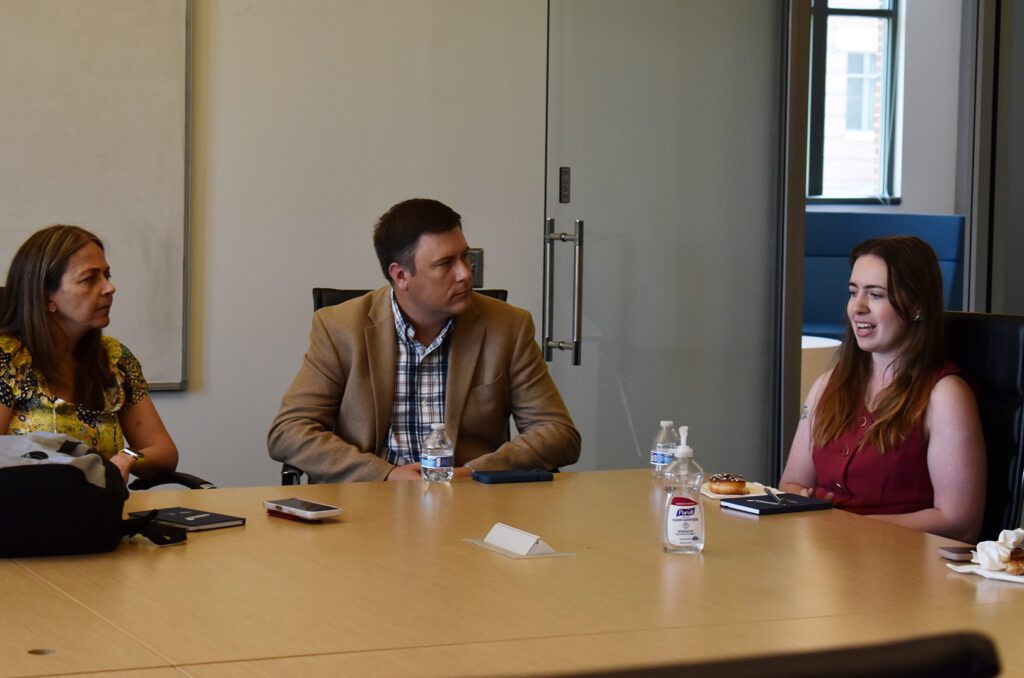
Ellia Morse, founder of Authentiya, right, speaks alongside Trina Nudson, The Layne Project, and Bob Waddell, MD Matchup, during a founder roundtable conversation at Aspiria Now in Overland Park; photo by Taylor Wilmore, Startland News
Pitch practice and progress
Before the investor meetings, founders refined their stories through pitch practice sessions and open discussions, sharpening both their delivery and their vision.
Ellia Morse, founder of Authentiya, Lawrence, showcased her browser extension designed to help students and educators navigate responsible AI use.
“Authentiya sits alongside the student writing process to show how students interact with AI,” Morse said. “With Authentiya, students are able to prove their work as their own, teachers know when and why students use AI, and schools can raise the next generation of AI literate learners.”
She saw the event as an opportunity to grow both her confidence and her network.
“Practice on pitching is one of the first things of just being confident in the professional setting, but also making those soft introductions and starting to build relationships,” Morse said.
Zik Nwanganga, co-founder of Ulom, Kansas City, pitched a platform that connects employers in the trades with immigrant and refugee workers, tackling two systemic challenges at once.
“There’s a labor shortage of 7 million workers needed in the trade skills industry, there are 8 million immigrants and refugees who are either unemployed or working middle wage jobs,” he said.
But building Ulom in Kansas City hasn’t been easy, especially when it comes to securing funding.
“For us, the issue has been being able to find an angel network that is willing to take buy-in at startups like ours, which is kind of unconventional,” Nwanganga said. “Most times, a lot of partners who are my friends have to leave Kansas City to go and do that in other places. But we’re hoping to really stay.”
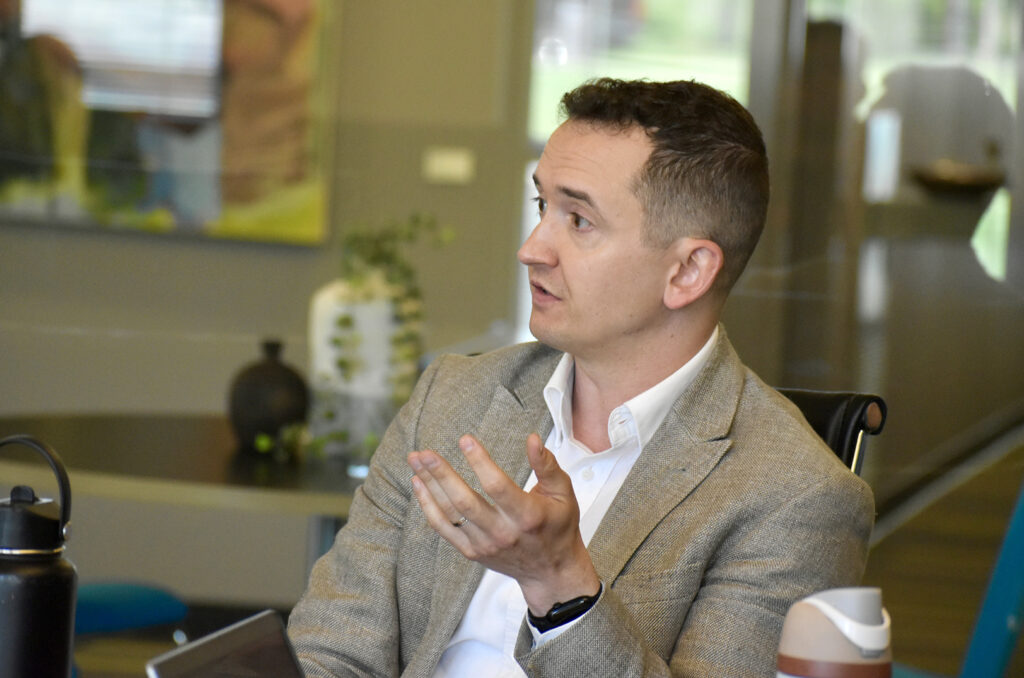
Matthew Lindquist, founder of Scholarnetics360, speaks during a founder roundtable conversation at Aspiria Now in Overland Park; photo by Nikki Overfelt Chifalu, Startland News
Matthew Lindquist, founder of Scholarnetics360, Prairie Village, shared how his mentorship platform for healthcare professionals is already helping reduce burnout and improve care.
“Healthcare has an up to $30 billion mentorship problem,” he said. “So that’s why we started Scholarnetics360, healthcare’s first mentorship marketplace and knowledge sharing hub.”
With paying customers already on board, Lindquist said they’re now looking to scale.
“We are looking for people to open their networks or angels to open their pocketbooks to help us ramp up our marketing for our target market and then expand to other fields,” he said.
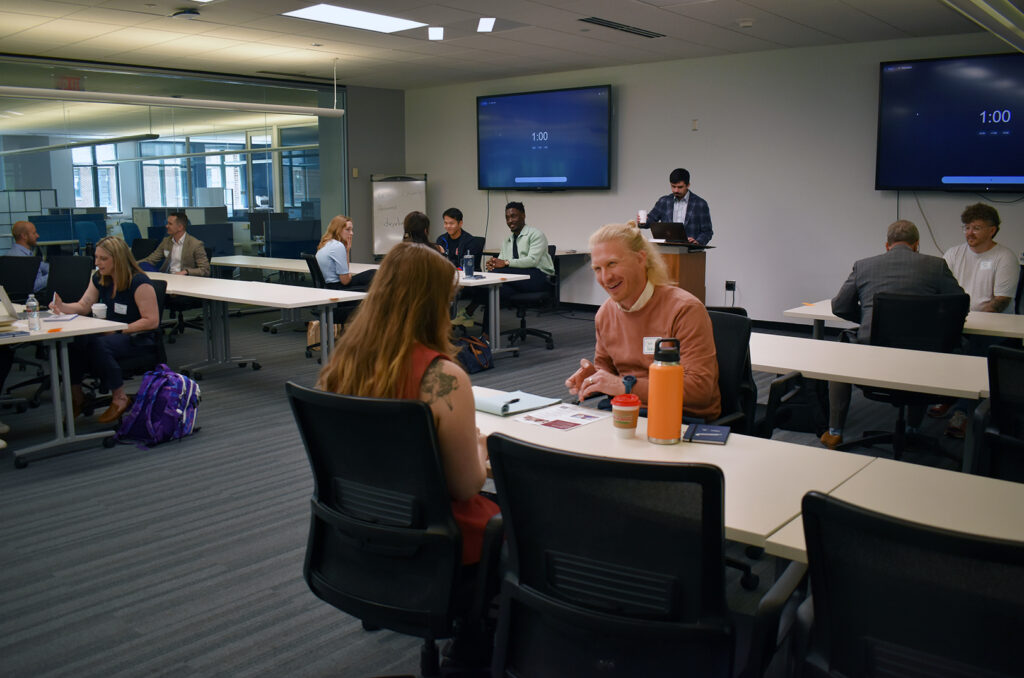
Entrepreneurs participate in speed rounds with investors during finale event for the NXTSTAGE Accessing Growth Capital Program; photo by Taylor Wilmore, Startland News
Planting local seeds
NXTUS’s focus isn’t just one day of pitching, it’s about long-term impact and momentum for founders.
Reilly said regional investors play a key role in supporting and sustaining the local innovation pipeline.
“We also see it incumbent upon us as a geographically focused, regional investor to help contribute, so the companies can reach the ability to meet the metrics that we’re using,” he said.
He added that structured programs like this are vital for early-stage founders.
“The program provides guidance, especially during the nebulous period that a lot of founders face at this stage,” Reilly said. “Helping them so they don’t have to go at it alone.”




